Living Through a Pandemic: An African University’s Response to the COVID-19 Crisis
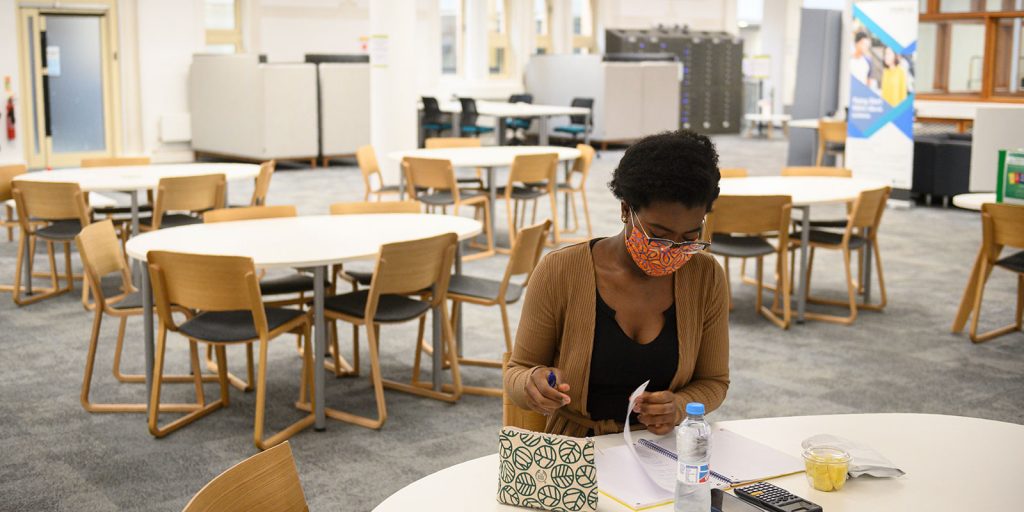
We watched in disbelief as COVID-19 emerged in China and ravaged parts of Europe and the Americas. Being a deeply religious country, we prayed and hoped that we would be insulated after all, we were miraculously spared the 2014 Ebola crisis that hit a number of West African countries including Liberia, Sierra Leone, Guinea and Nigeria. Our hopes did not last beyond March 12, 2020, when our first two imported cases were reported. The third case recorded on March 14, 2020 was a University of Ghana student who had returned from a trip abroad. That hit home painfully, and we quickly had to act.
COVID-19: Societal Resilience but Depreciating Exigency
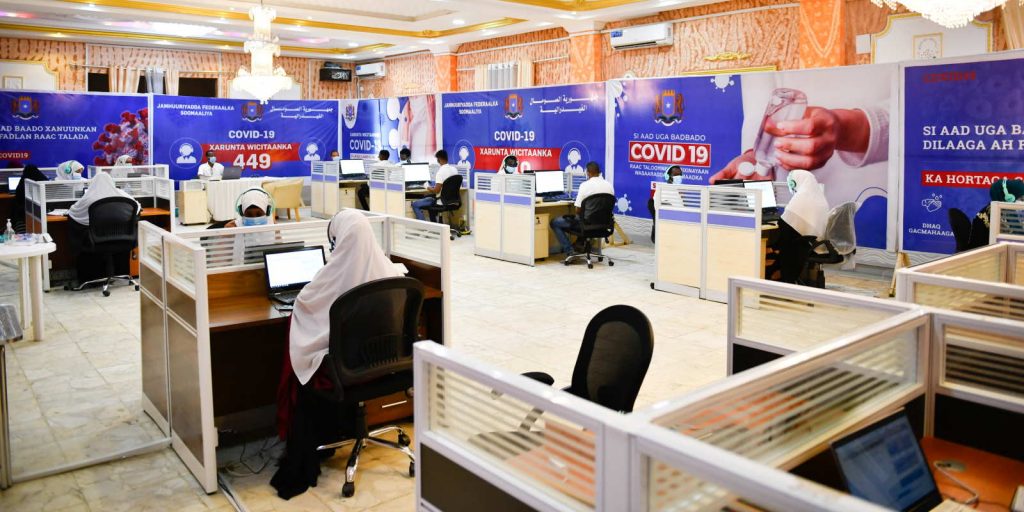
When COVID-19 seized global attention, Somalia, a country in the Horn of Africa with a history of conflict and instability, was already facing a critical year in 2020. The methodology of the upcoming federal elections in early 2021 was in dispute amid a tug of war between the Federal Government of Somalia and Federal Member States. The spectre of renewed conflict as a result of political impasse loomed. The early forecast for Somalia was bleak and the possibility of a major humanitarian crisis was projected. Compounding the political and security issues plaguing Somalia’s development, environmental disasters such as locusts and floods were impacting food security and causing displacement. Moreover, Somalia’s health infrastructure ranks second last in the Global Health Security Index. With the nascent recovery of Somalia relying on significant and sustained support for governance and security from the international community, the arrival of COVID-19 was another crisis with hitherto unforeseen impact.
COVID-19, Somalia and the United Nations
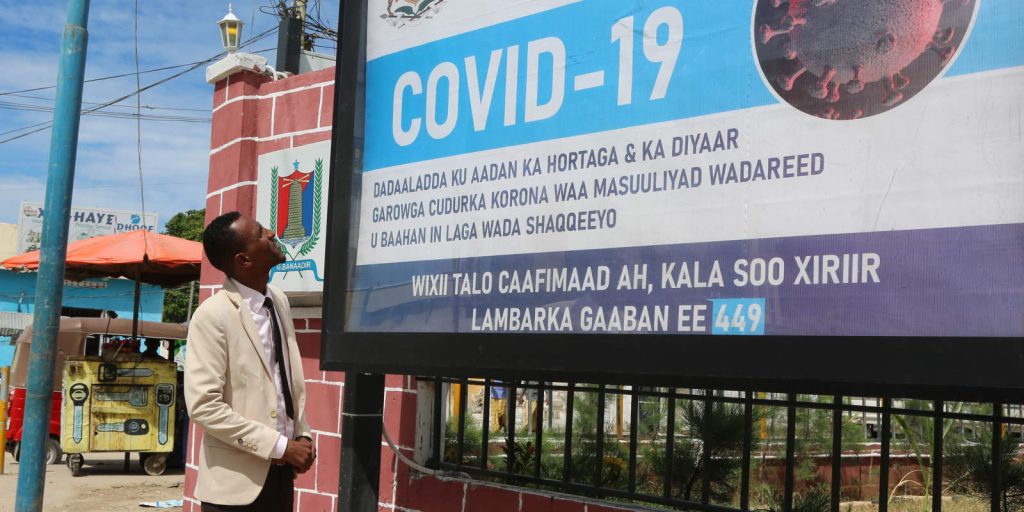
Like so many others around the world at the start of this year, I and members of the UN family watched with alarm the growing spread and impact of COVID-19 in Somalia and elsewhere in the world. Our biggest worry was the potential for the pandemic to spiral out of control. Somalia is rebuilding after three decades of conflict, protracted crises and repeated humanitarian emergencies. Continued insecurity makes parts of the country inaccessible to humanitarian workers.
The impact of COVID-19 on the Horn of Africa
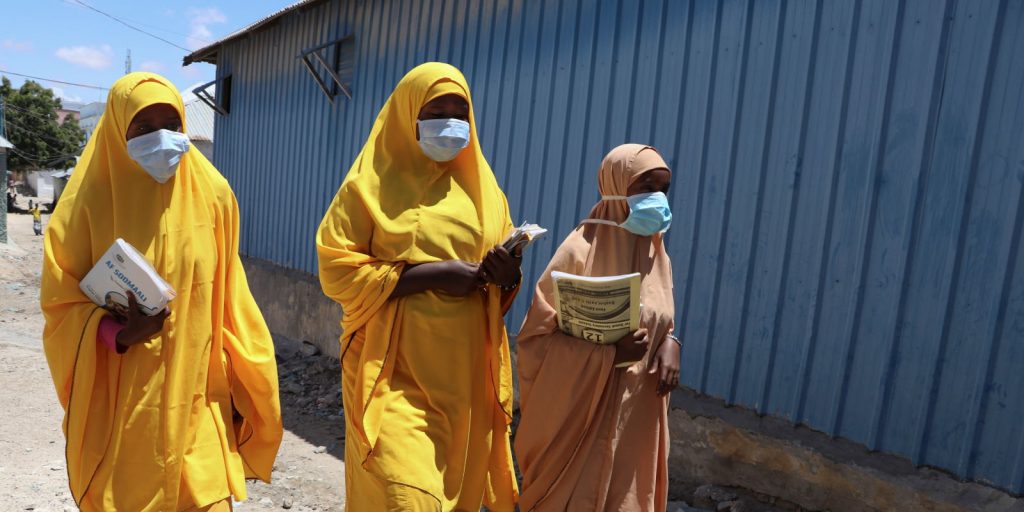
The novel coronavirus (COVID-19) was first reported in the Horn of Africa region in early March 2020. At first, the number of cases seemed low compared to other regions, both on the continent and around the globe; however, these figures did increase steadily. Six months into the pandemic, it is encouraging to note the downward trend in the number of cases and deaths over the past few weeks. Thus far, more than 150,000 cases have been reported in the Horn of Africa; however, testing capacity is still quite limited, making the numbers a poor indicator of the actual infection rate. As pointed out by Africa Centres for Disease Control and Prevention (Africa CDC), both the drastic preventative measures applied across Africa by governments in the first months of the pandemic and the continent’s young population certainly played a significant role in limiting the devastating impact of the virus, as seen elsewhere. Regional and international efforts have also helped in hampering the immediate impact of the pandemic, but a sustained and coordinated effort is needed to reduce the longer-term effects of COVID-19, particularly the effects on public health and the economy.
The effects of COVID-19 on AMISOM operations in Somalia
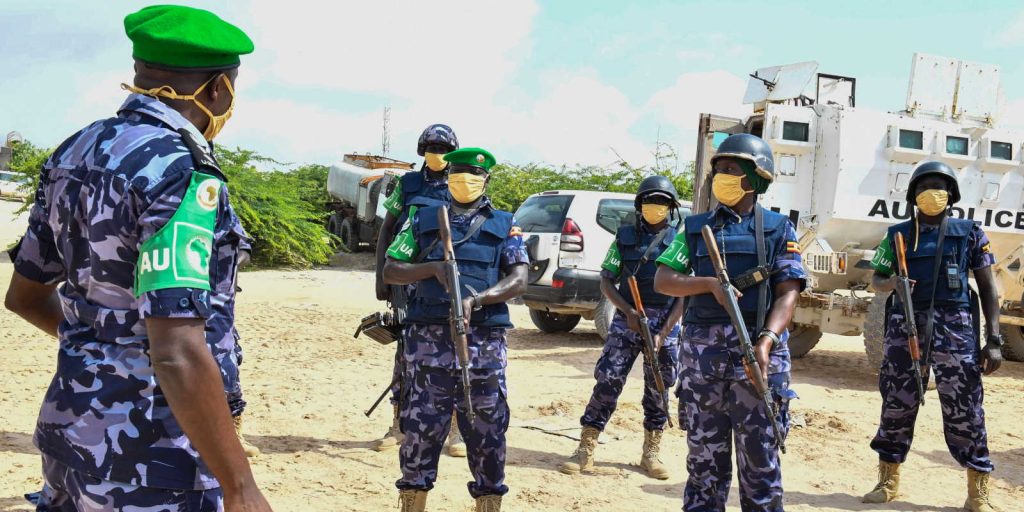
The escalation of the COVID-19 pandemic across Africa, which began in March 2020, has gravely affected how the African Union Mission to Somalia (AMISOM) undertakes its operations. Given the multifaceted mandates of AMISOM, which include undertaking activities requiring close-quarters congregations and contact with Somali stakeholders, a balance has to be struck on how to continually discharge these mandates without putting the lives of its personnel and that of the Somali community in jeopardy.
COVID-19 and the Africa-Europe strategic partnership
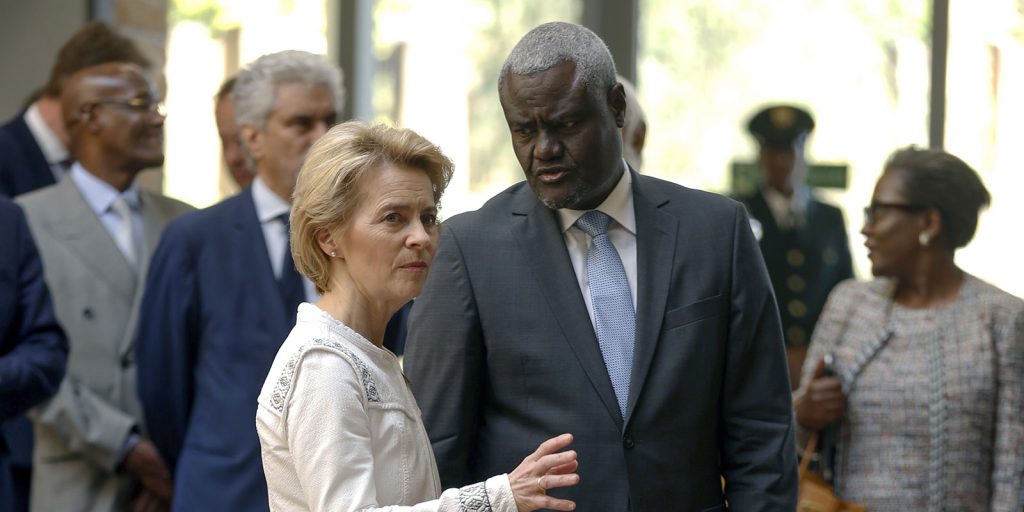
The African Union (AU) and European Union (EU) were scheduled to adopt a new strategic partnership agreement at an AU–EU summit in October, but it had to be postponed due to COVID-19 risks and related delays. This may be a blessing in disguise, as it gives the negotiators more time to adapt the relationship to COVID-19 and to craft an agreement that expands the focus, scope and scale of African–European relations for the next two decades.
Reflecting on some emerging trends of COVID-19’s impact in Africa thus far
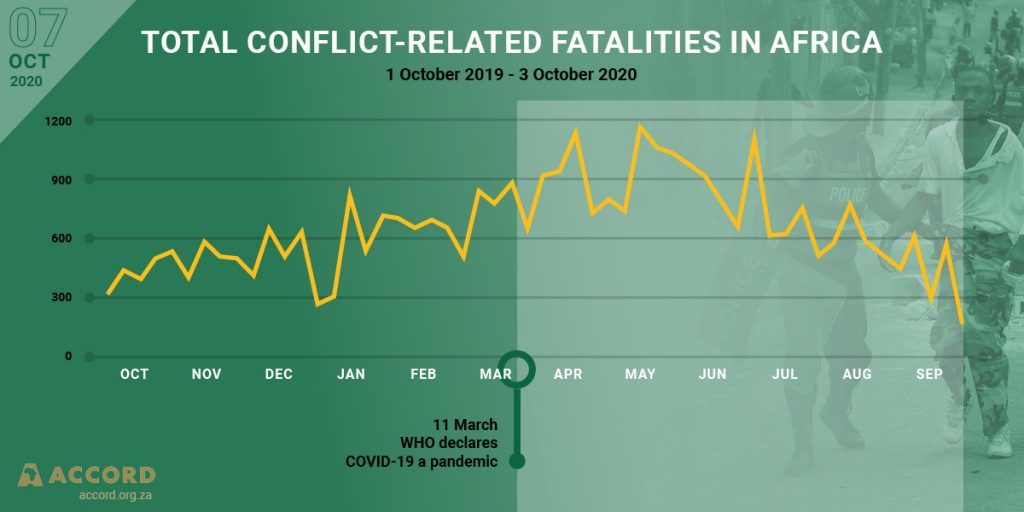
By 7 October 2020, African countries will have been managing the effects of the COVID-19 pandemic for approximately 29 weeks. While the rate of infections and deaths has been high in many countries in other parts of the world, this has not been particularly so for Africa. Apart from South Africa, which is among the top 10 countries with the highest infection rate, the reported rate of infections and deaths has been low in many other African countries. Early precautionary measures were taken, before many (in some countries any) infections and deaths. This strategy seems to have been effective at containing the virus, but it compromised livelihoods, thus exacerbating existing socio-economic and political vulnerabilities.
Solidarity with the people and governments of Africa in tackling COVID-19
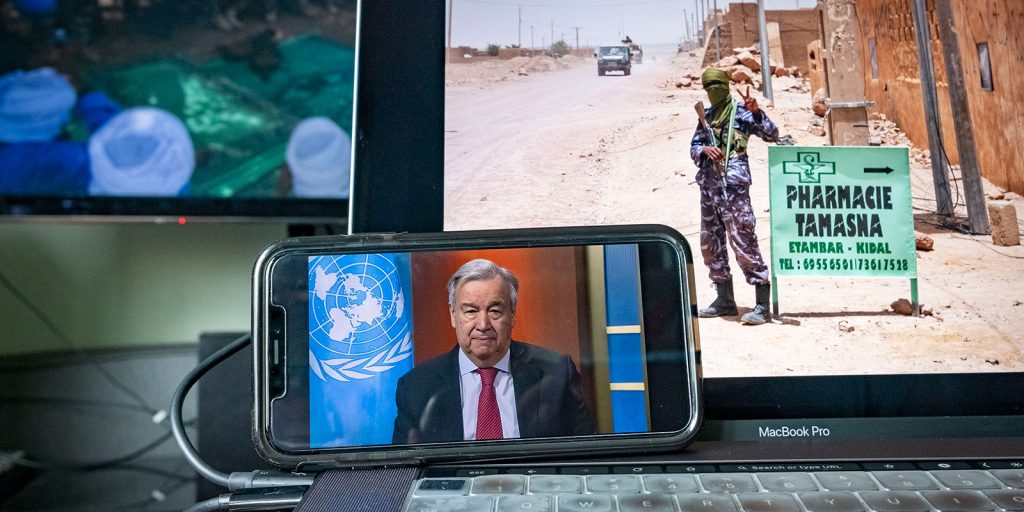
Africa has responded swiftly to the COVID-19 pandemic and, as of now, reported cases are lower than early pessimistic estimates. It is too early to know the full impact of COVID-19 on Africa. To date, the experience has been varied. Moreover, as with other regions, there is not one homogenous narrative around the COVID-19 pandemic in Africa. The pandemic is affecting African countries differently, given varied strengths and vulnerabilities. There are causes for concern, but also reasons for hope. Much hangs in the balance. Vigilance and preparedness are critical.
Combating COVID-19: Uganda’s race against the clock
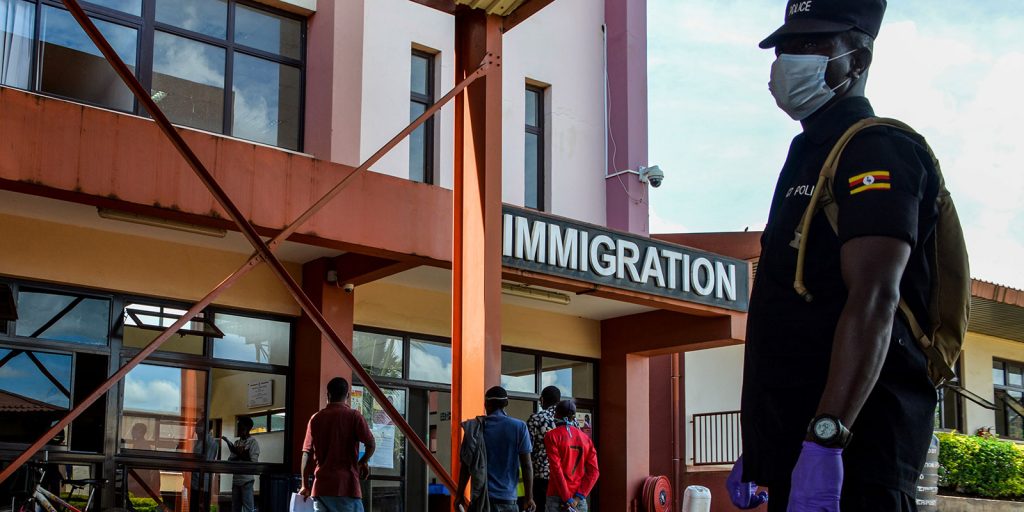
When the COVID-19 outbreak began to emerge as a global crisis, countries around the world were forced to react and prepare for a potential outbreak within their borders. For many, closing their borders was an immediate solution, but for Uganda, it was a measure to buy time for a public health approach composed of multisector strategies that had proven successful time and time again in the country’s response to epidemics.
The effects of COVID-19 on farmers and pastoralist communities
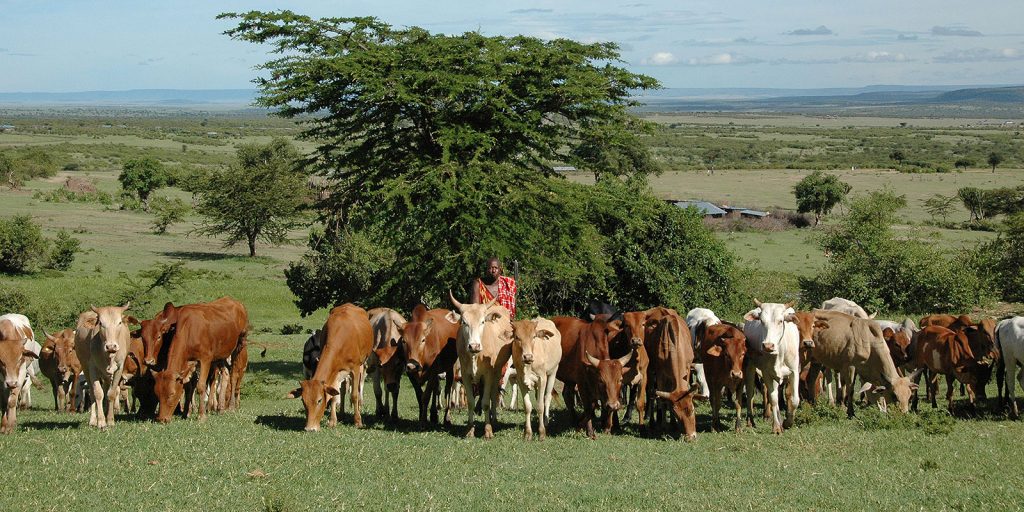
There is an important need for relevant stakeholders to adopt strategies aimed at reaching out to farming and pastoralist communities, if the fight for the mitigation and possible eradication of the COVID-19 pandemic is to have any meaningful effect.
